Introduction
You’ve invested in marketing. The tools, the team, the budget: everything seems right. But the results? Flat.
Your ads aren't converting, content isn’t ranking, and competitors are suddenly everywhere: on Google, LinkedIn, and even AI tools like ChatGPT and Perplexity. And no matter how many A/B tests you run, you can’t pinpoint what’s not working. Been there?
Now what if you have a marketing partner that uses artificial intelligence to predict which creative will convert, what topics will rank in search and AI Overviews, and which customer segments are most likely to churn or buy.
The smartest brands today aren’t just testing campaigns. They’re collaborating with AI marketing agencies that automate creative production, personalize content at scale, and predict what will work next.
And this isn’t just hype. The AI in marketing industry is booming, projected to reach $82.2 billion globally by 2030, growing at a CAGR of 25%. Adoption is surging too with more than 71% of companies now using generative AI in marketing.

This guide features top AI marketing agencies in 2025: firms that are redefining how brands connect, convert, and grow using machine learning, predictive analytics, and generative content to improve ROI and future-proof marketing strategy.
Top AI Marketing Agencies in 2025
An AI-based SaaS marketing agency uses artificial intelligence tools to automate campaigns, personalize content, and optimize performance across channels. These agencies apply machine learning, predictive analytics, and real-time data to increase ROI and scale marketing efforts.
AI-driven strategies improve targeting, speed up execution, and adapt campaigns based on user behavior. Businesses choose AI marketing agencies to reduce costs, boost engagement, and gain competitive advantages in a data-driven environment.
But what makes a top AI powered SaaS growth marketing agency in 2025? We evaluated each firm on their tech stack, use case, innovation in generative AI, and proven results across key industries.
Leading names in this space include:
- RevvGrowth
- NoGood
- Major Tom
- SmartSites
- Single Grain
- NeoReach
1. RevvGrowth
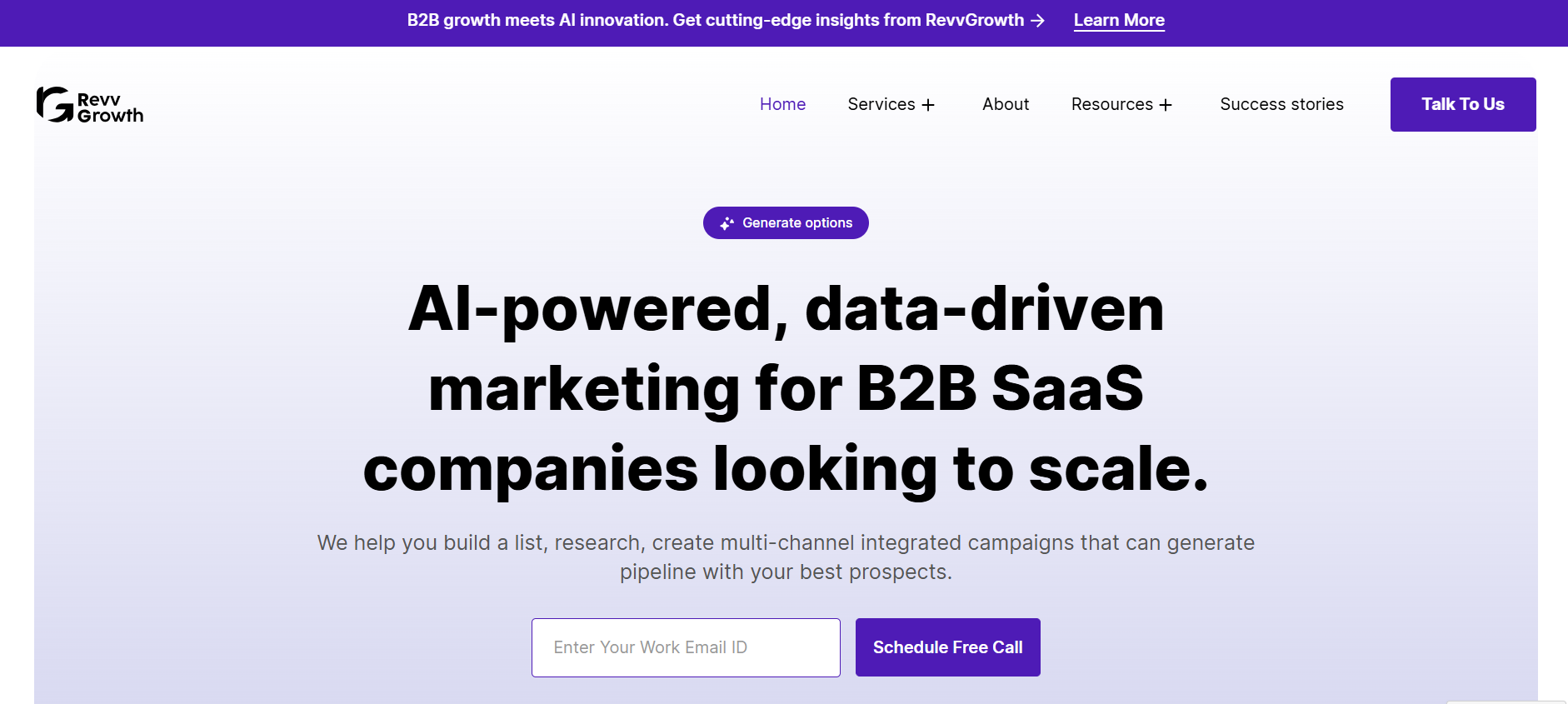
RevvGrowth is a performance-focused marketing agency built from the ground up for the AI era. The team helps SaaS companies grow with a full-stack AI content engine that produces long-form, SEO-rich blogs designed to rank not just on Google, but also in AI Overviews across tools like ChatGPT and Perplexity.
For example, Revv Growth partnered with Atlan to publish a resource-rich guide that secured multiple featured snippets and AI visibility, contributing significantly to organic traffic without paid media support.
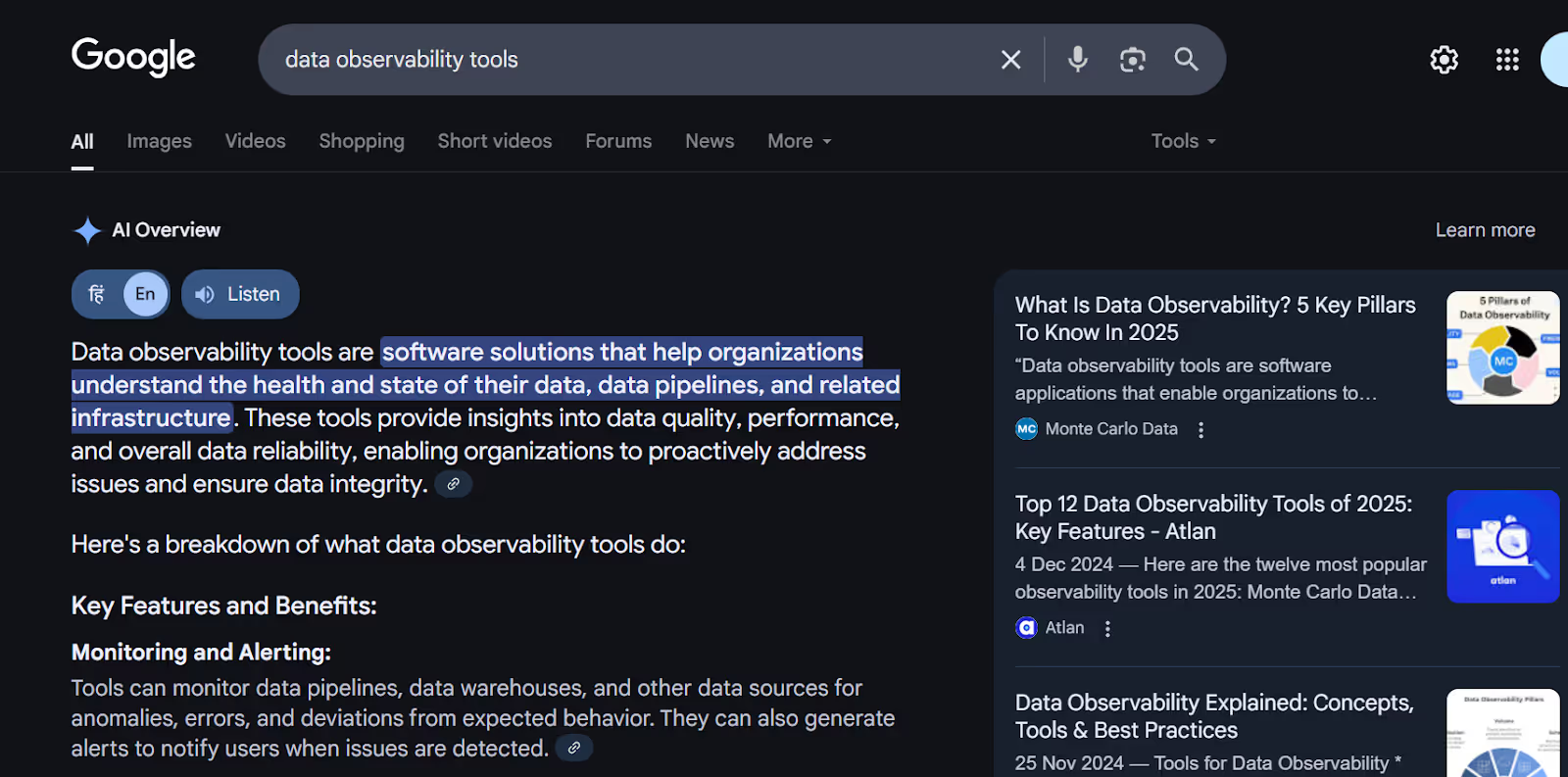
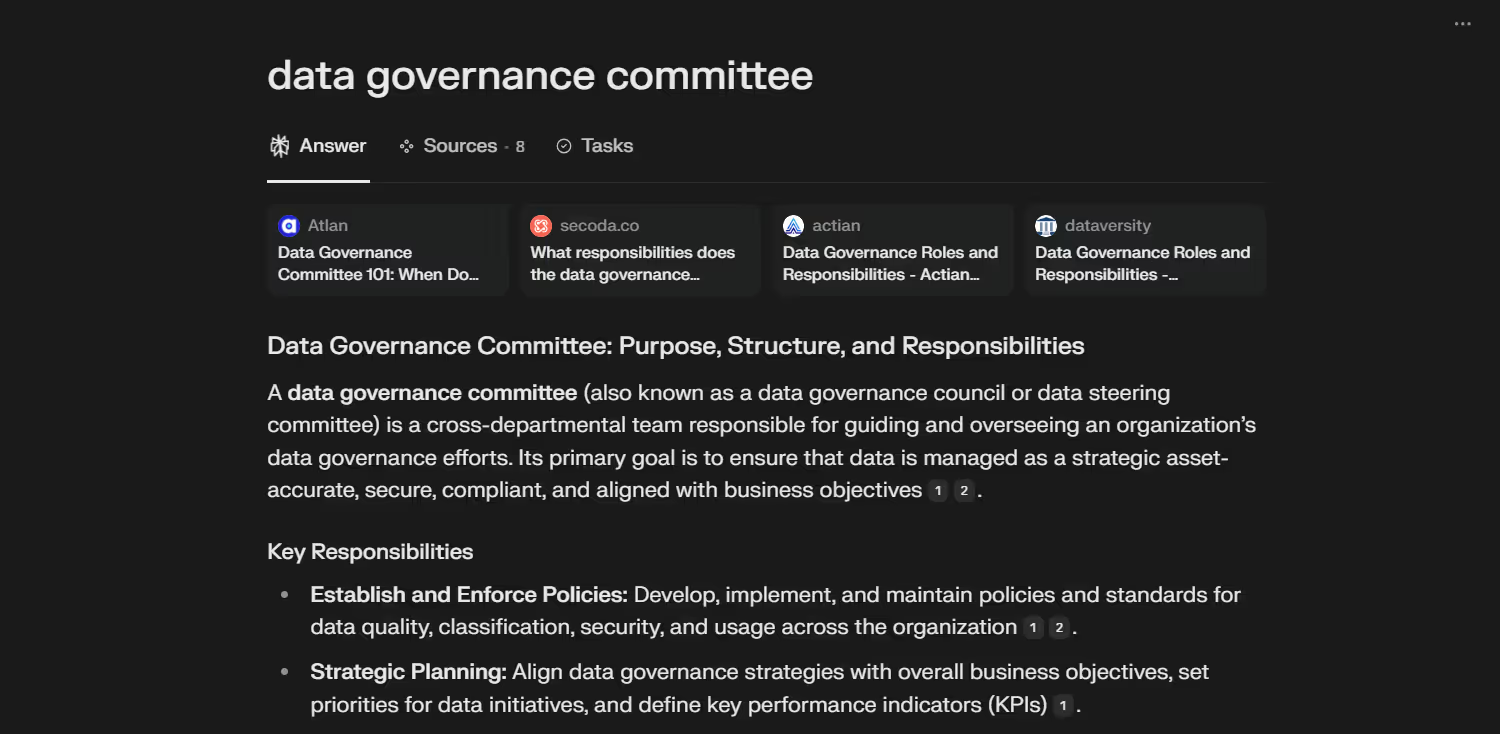
Operating on a People + Platform model, RevvGrowth blends the scale of automation with the quality of expert oversight. AI handles ideation, outline generation, and semantic optimization, while human editors refine content clarity, depth, and brand alignment.
Key Offerings:
- AI-First Blog Engine:
Publishes 130+ SEO-optimized, long-form blogs per month using a stack that includes ChatGPT, Perplexity, Claude, Frase, and Clearscope. Each piece is structured for both search and AI snapshot visibility.
- Content Strategy & Topic Intelligence:
Identifies high-conversion, low-competition topics using real user pain points from community forums, AI-driven clustering, and keyword intent mapping.
- End-to-End Content Operations Automation:
Uses Notion and CMS integrations to automate briefs, outlines, editing workflows, and publishing, reducing manual effort and time-to-publish.
- Performance Feedback Loop:
Tracks rankings, AI Overview placements, and conversion metrics to feed performance insights back into strategy. This loop improves precision with every content cycle.
For SaaS brands looking to scale SEO with AI, accelerate visibility, and drive consistent marketing results, RevvGrowth offers a proven, AI-native system built for speed and outcomes.
2. NoGood
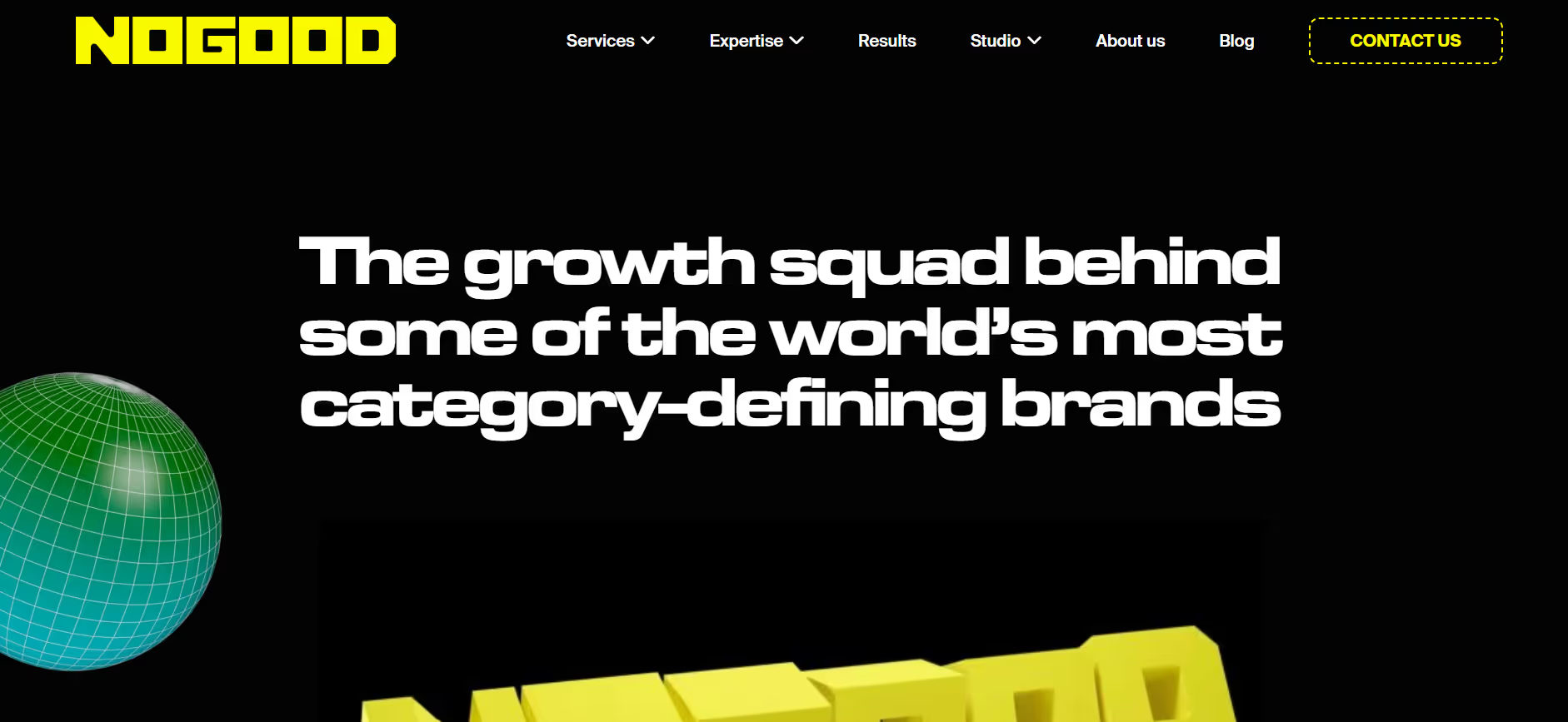
NoGood combines growth marketing with AI experimentation to deliver rapid results. Known for their test-and-learn culture, they use machine learning to optimize CRO, paid ads, and creative performance.
What sets NoGood apart is how they use AI across the funnel: from predictive targeting and budget optimization to dynamically testing ad copy and visuals. Their success spans industries like fintech, healthtech, and eCommerce, making them a go-to choice for startups and scale-ups alike.
Key Offerings:
- AI-led creative testing and CRO
- Paid media performance optimization
- Full-funnel analytics and experimentation
If you're looking to accelerate performance marketing without wasting budget on random guesswork, NoGood’s AI-driven process is a win.
3. Major Tom
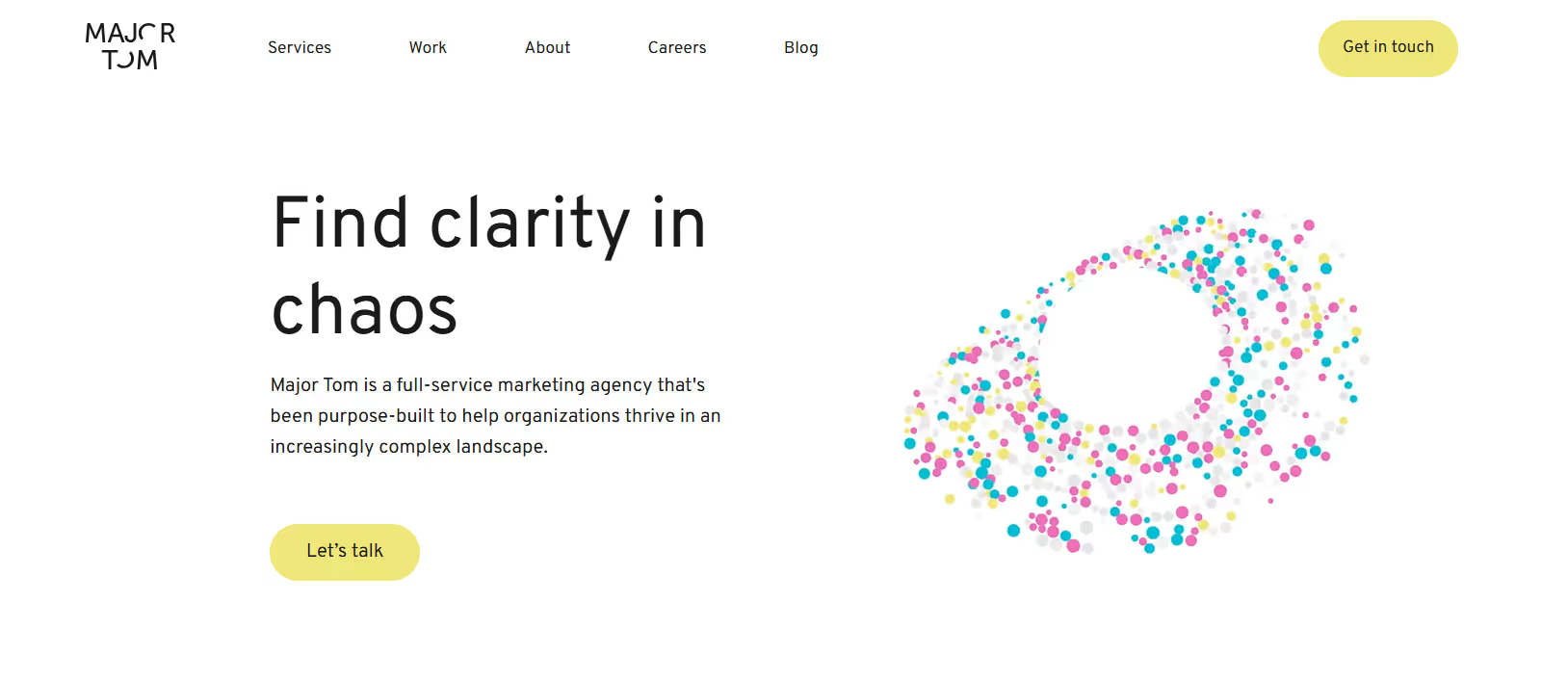
Major Tom brings a unique fusion of creative branding and AI-driven strategy. They specialize in translating brand DNA into scalable digital campaigns using AI-assisted insights and automation.
Their AI implementation is often woven into media planning, content personalization, and channel optimization, giving clients a strong balance between data-driven execution and brand storytelling.
Key Offerings:
- AI-powered brand strategy and creative testing
- Cross-channel media planning with predictive analytics
- Machine learning models for campaign attribution
For brands that need both storytelling and scale, Major Tom blends big agency thinking with startup agility.
4. SmartSites
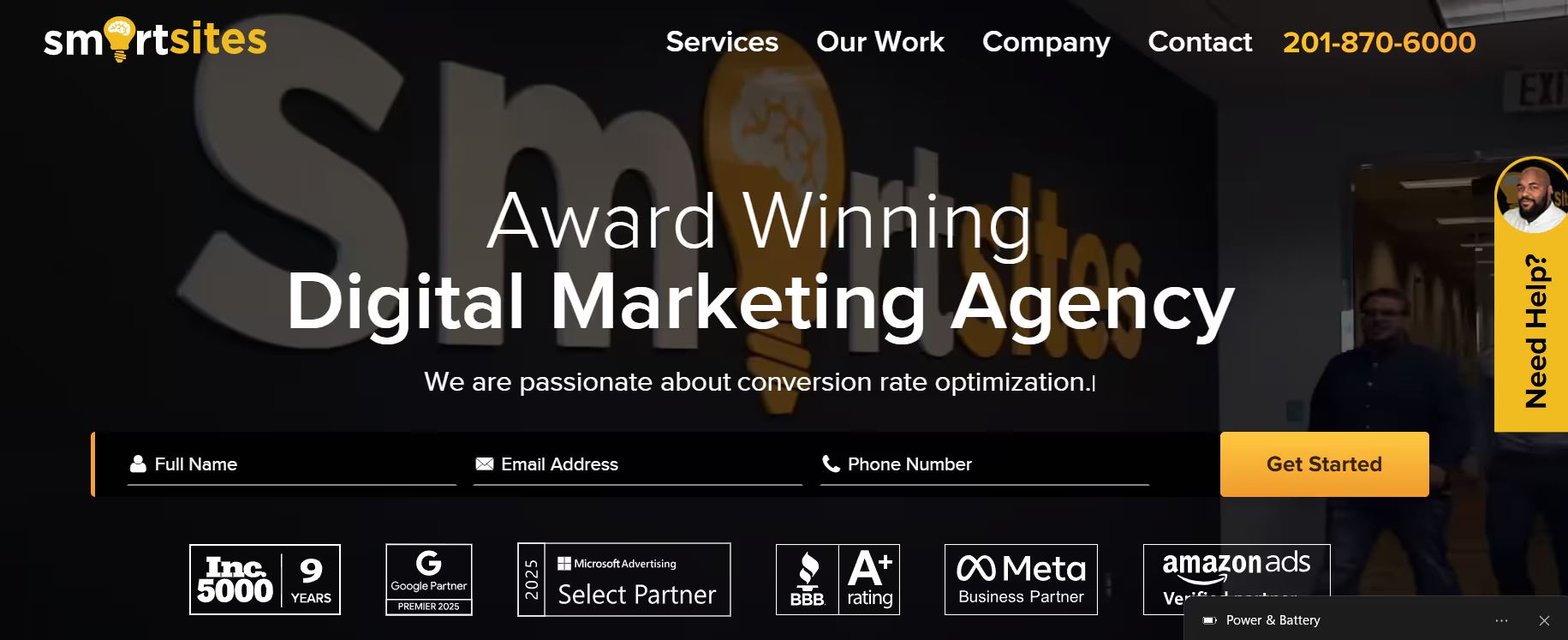
A top name in PPC and SEO, SmartSites is turning heads for their AI-powered automation tools in advertising. From dynamic bid management to AI-written ad creatives, they’re streamlining digital campaign execution like never before.
They’re especially strong in eCommerce and local services, helping brands scale paid performance with tools that optimize budget allocation in real-time.
Key Offerings:
- AI-driven PPC with auto-bid & budget optimization
- SEO automation for local and national visibility
- Real-time analytics dashboard powered by AI
If your marketing needs revolve around performance marketing at scale, SmartSites delivers reliable automation with human oversight.
5. Single Grain
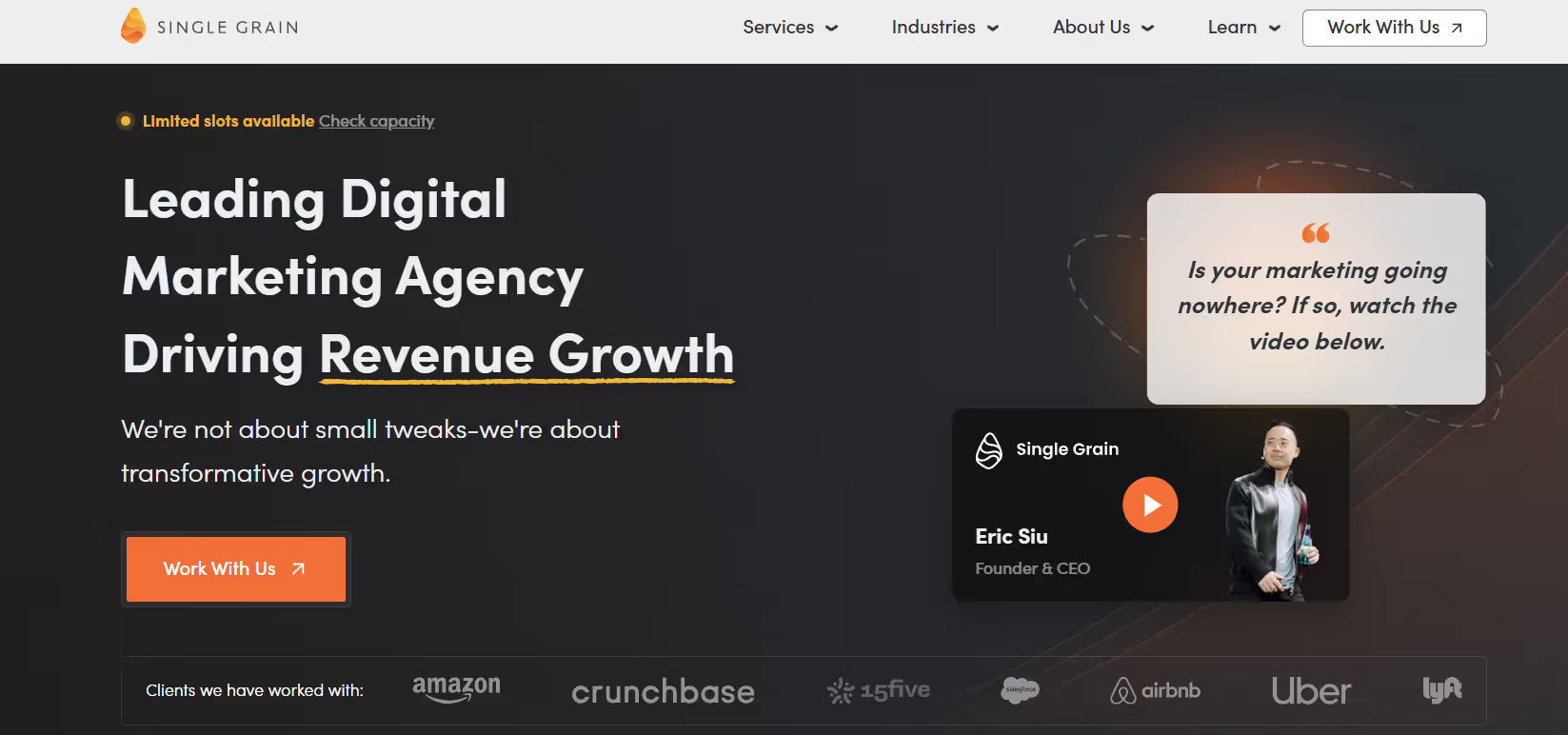
Single Grain is a digital agency built around AI-assisted SEO and content creation. They help clients deploy GPT-driven campaigns at speed, particularly in SaaS and tech verticals.
From YouTube growth to long-form blog production, Single Grain brings a performance mindset to everything it does, often blending human creativity with LLM-powered tools for scalable output.
Key Offerings:
- GPT-based SEO blog and ad copy production
- Video growth strategy using AI tools
- Paid acquisition with real-time optimization
Ideal for tech-driven brands looking for an edge in organic and paid search, Single Grain combines AI workflows with hands-on strategy.
6. NeoReach
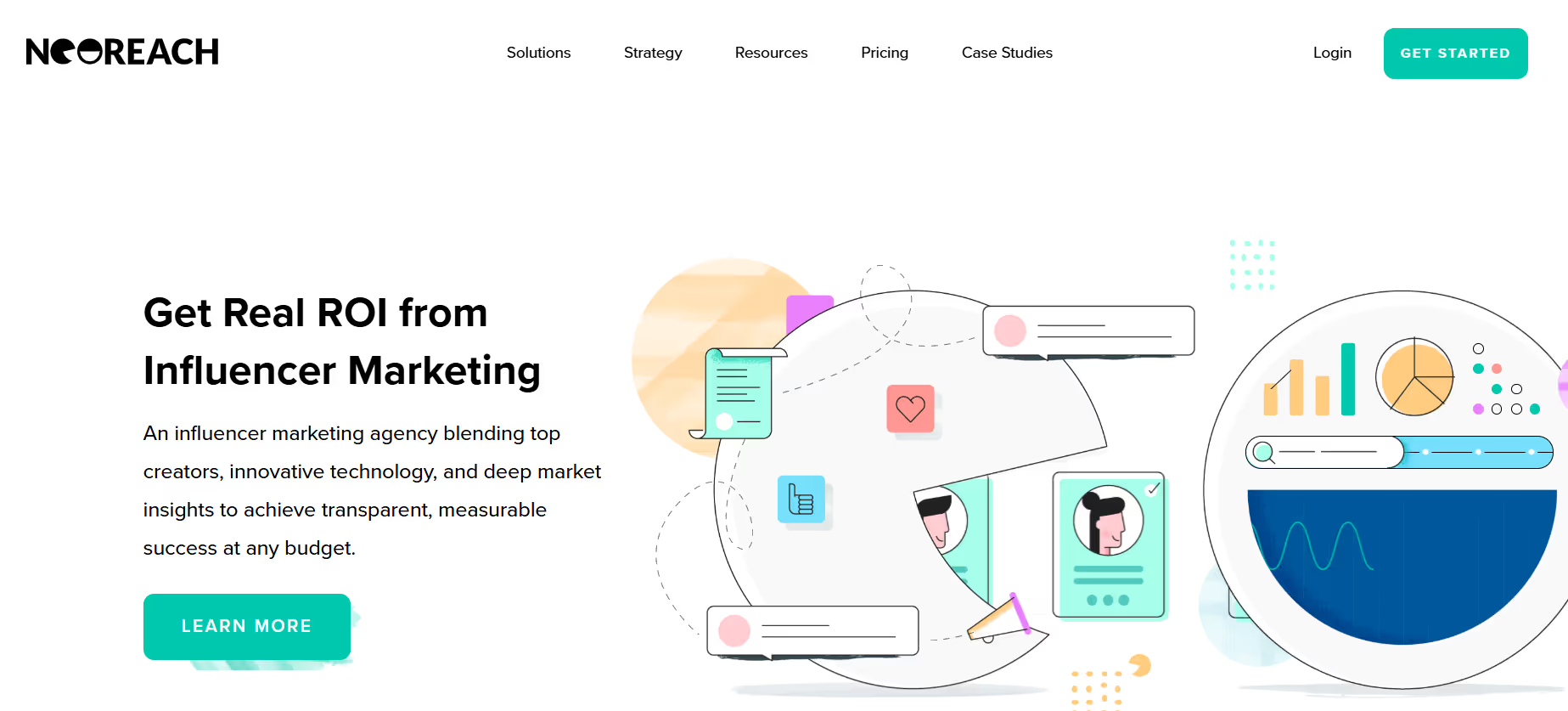
NeoReach is redefining influencer marketing with proprietary AI that powers influencer discovery, sentiment analysis, and campaign optimization. Their data-rich platform helps brands choose the right voices and predict campaign ROI based on historical performance and audience data.
Using machine learning, NeoReach analyzes influencer reach, engagement, and audience overlap to guide campaign execution. Their AI also enables real-time content and budget adjustments.
Key Offerings:
- AI-driven influencer selection and performance tracking
- Real-time campaign optimization
- Sentiment analysis and brand safety scoring
If your growth strategy includes creators or ambassadors, NeoReach gives you the AI lens to scale smart.
How to Choose the Right AI Marketing Agency
Hiring an AI marketing agency isn’t just about who has the best tools. It’s about finding a partner that understands your business, delivers measurable outcomes, and fits into your existing workflows.
1. Industry Expertise
An agency that understands your space can produce better results, faster. Whether you're in SaaS, healthcare, eCommerce, or fintech, domain knowledge helps align campaigns with your buyer journey and decision-making cycles.
Ask whether the agency has:
- Worked with companies in your industry
- Delivered campaigns that match your sales funnel
- Created content that speaks your audience’s language
For example, Revv Growth works exclusively with SaaS brands, which makes it easier to map content to use cases like ABM, sales compensation, or AI Overviews. Agencies with niche expertise will already know your competitive landscape, key personas, and messaging best practices.
2. Technology Stack
Your agency's tech stack determines how scalable, efficient, and future-ready your campaigns will be. The top AI marketing firms combine proprietary tools with top-tier platforms like ChatGPT, Perplexity, Jasper, HubSpot AI, and Clearbit to generate and personalize campaigns at speed.
Ask:
- Do they build custom workflows using best-in-class tools?
- Is their stack flexible enough to integrate with your CRM or CMS?
- Are they transparent about which AI tools are used and how?
The right stack should support your strategy, not dictate it.
3. Case Studies & Client Testimonials
Look for agencies that can back their claims with real-world proof. Ask for case studies that show specific results such as:
- SEO traffic increases
- Paid media ROI
- Personalization-driven conversions
- AI content that ranks in ChatGPT, Copilot, or Perplexity
Look for client quotes, public metrics, or strategy breakdowns in their case studies. These prove the agency can deliver on its promises.
For example, Revv Growth has helped SaaS brands like Atlan (a data democratization platform) and Everstage (a sales compensation and commission tracking software) secure visibility across Google and AI-powered search tools by deploying structured, intent-led content at scale.
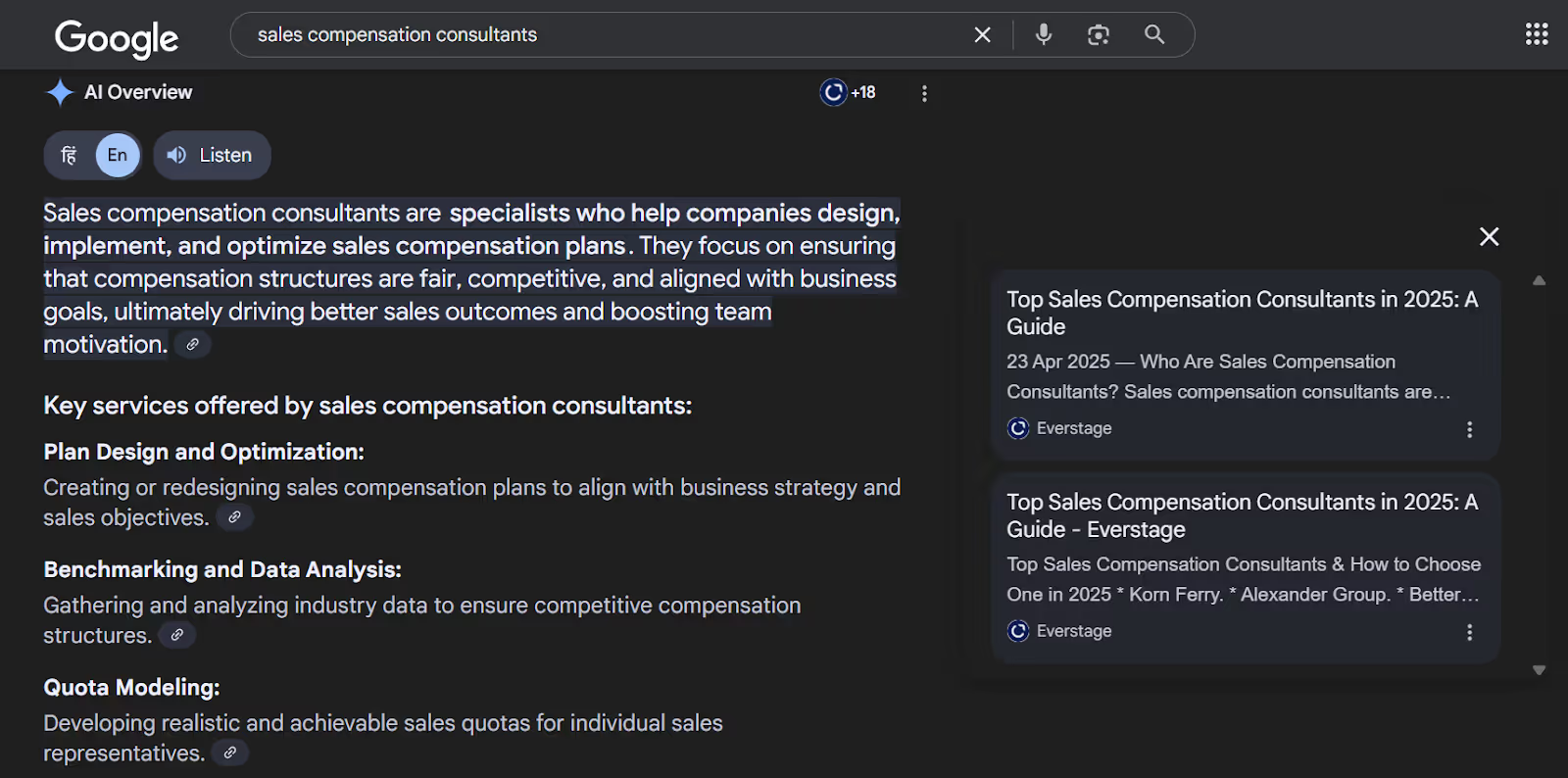
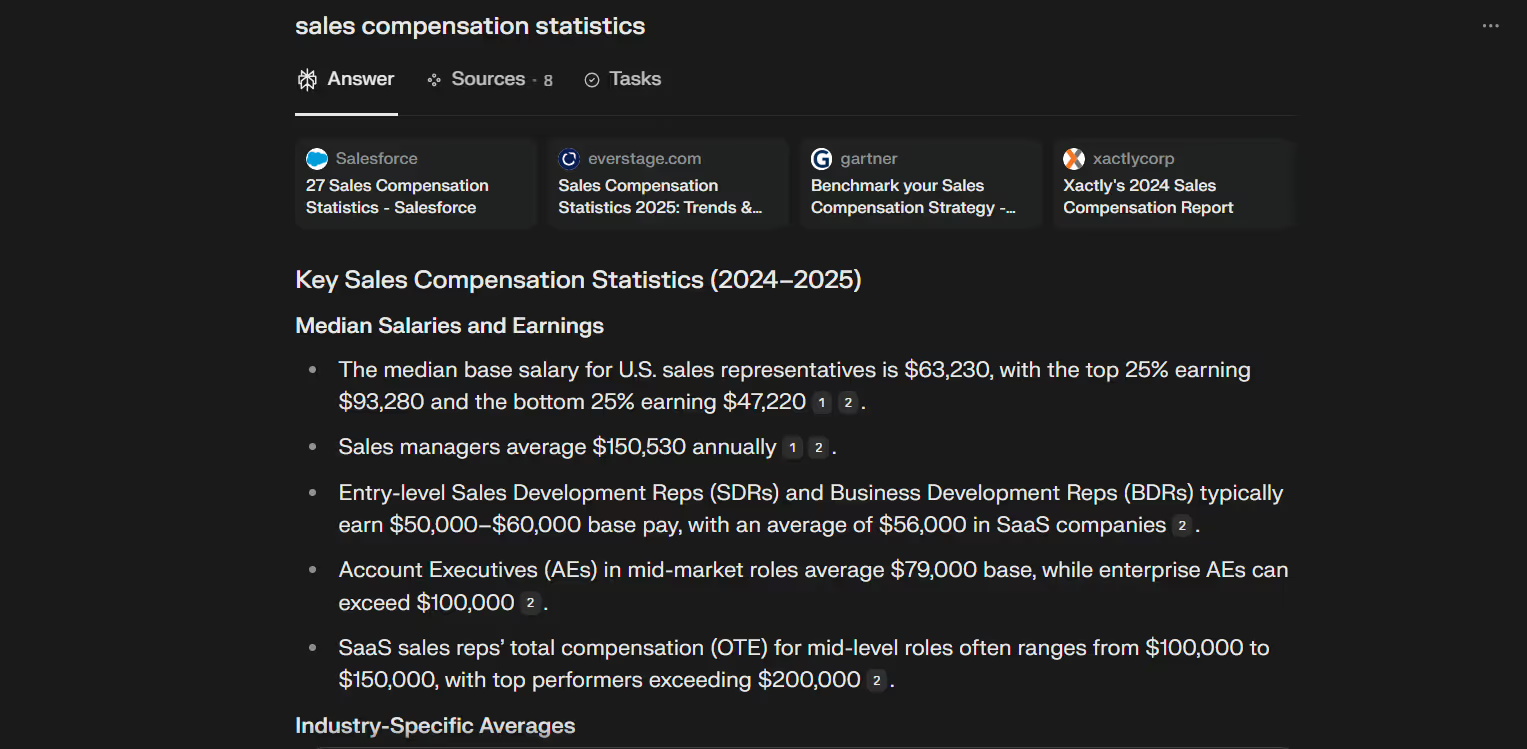
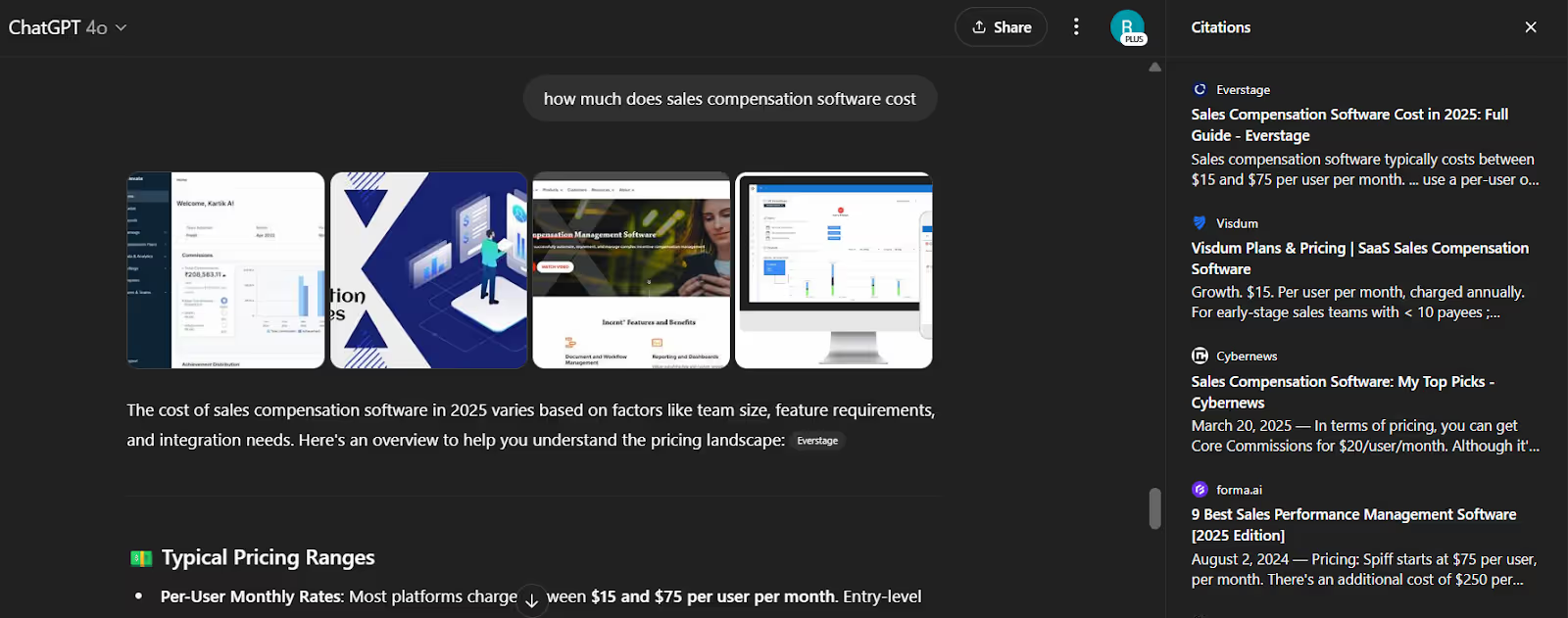
4. Pricing Models & ROI
AI agencies may offer different engagement models such as:
- Monthly retainers
- Performance-linked contracts
- Project-based engagements
Make sure the model fits your goals and budget. More importantly, understand how ROI is defined. For AI services, this could include:
- Time saved through automation
- Cost per AI-generated lead
- Attribution clarity across touchpoints
Effective agencies will work with you to define AI-specific KPIs such as automation coverage or content-to-conversion ratios, giving you full visibility into impact.
Why More Companies Are Hiring AI Marketing Agencies
The shift toward AI-powered marketing is a response to growing pressure for faster results, more personalized experiences, and smarter resource allocation. As traditional methods hit diminishing returns, more companies are turning to AI marketing companies for a competitive edge.
According to Birdeye’s State of AI for Agencies in 2024 report, 87% of agencies have adopted AI tools into their client delivery pipelines, and nearly 80% plan to increase their AI investment this year. That level of momentum is no coincidence.
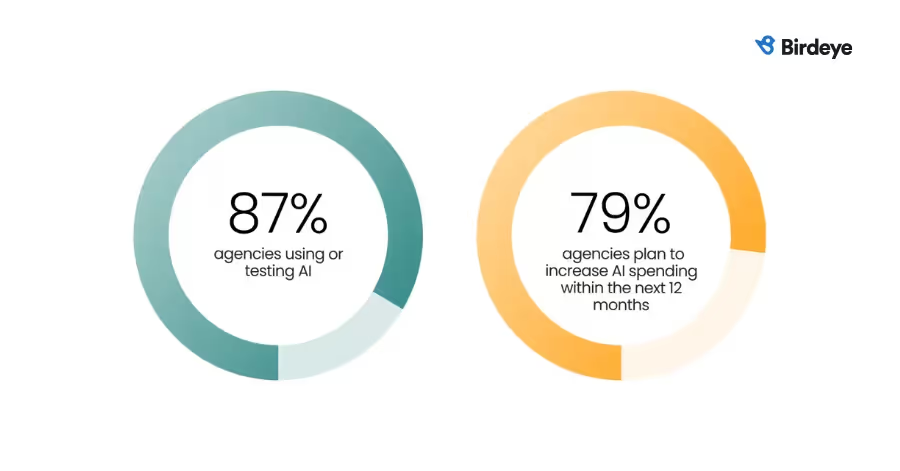
As Matt Elenjickal, CEO of FourKites, says: “Everything changed when gen AI came into the picture... large language models and gen AI have significant potential in our business. The biggest opportunity is to simplify the user experience in the B2B software space.”
Here’s why brands are making the switch:
- Faster execution: Campaigns that used to take weeks can now be launched in days, thanks to automation in design, copy, targeting, and performance tracking.
- Real-time content testing: With AI tools, teams can test messaging, visuals, and formats dynamically, adjusting on the fly based on live performance.
- Lean growth: AI tools lower the cost of content creation, segmentation, and personalization, enabling teams to do more with fewer resources.
If any of these challenges sound familiar, it may be time to reassess your approach:
- You're struggling to scale paid or organic content
- You want to show up in AI Overviews on ChatGPT or Copilot
- Your agency isn’t using automation or personalization
- You’re spending more but seeing fewer returns
Real-world examples show the payoff. Mars and Amazon partnered on a programmatic campaign using Amazon DSP, achieving a 4.3% lift in sales and 92% brand awareness through AI-powered ad delivery. Meanwhile, Delta Air Lines used AI attribution models to connect over $100 million in ticket sales to specific content strategies.
If you nodded at any of these use cases or challenges, the agencies in this list are already solving them, often in less time and with better ROI than traditional teams.
Benefits of Hiring an AI Marketing Agency
AI agencies aren’t just faster. They’re structured to deliver smarter, leaner outcomes. Here’s how they outperform traditional firms across speed, decision-making, and technology.
1. Speed & Scalability
Traditional agencies often take weeks to launch a campaign, with delays from brief approvals, reviews, and manual production. AI agencies streamline the process through automation.
With tools like ChatGPT, teams generate ad creatives, build landing pages, and test copy variations in hours. Automated bidding tools adjust budgets based on real-time performance, helping campaigns adapt faster than any human team could manage.
The result is more campaigns, more tests, and quicker feedback loops.
2. Data-Driven Decision Making
Most traditional agencies rely on past data and post-mortem reviews. AI-led teams use real-time analytics and predictive models to optimize performance while campaigns are live.
Tools like Google Cloud AI and Segment Predict help brands forecast churn, prioritize high-LTV segments, and reduce acquisition costs. Machine learning systems analyze user behavior continuously and adjust targeting, messaging, and spend without delay.
This isn’t reactive marketing. It’s proactive performance tuning.
3. Tool-Stack & Automation
While traditional setups often include scattered tools and disconnected systems, AI marketing agencies operate with integrated tech stacks that drive strategy and execution.
At Revv Growth, for example, the team uses a combination of ChatGPT, Perplexity, Clearscope, and Notion to produce long-form content optimized for both SEO and AI Overviews. Publishing workflows are automated for speed and consistency, and every piece is tied to user intent and AI visibility.
These connected systems make AI agencies leaner, faster, and more effective.
Core Services Offered by AI Marketing Agencies
AI marketing agencies provide more than just automation. They offer a full-service suite of tools and techniques that are transforming how brands create, distribute, and optimize marketing at scale. Here are the most in-demand services offered by the top AI marketing companies in 2025.
1. AI-Powered SEO & AEO
AI agencies today are not just optimizing for Google. They’re optimizing for AI Overviews across ChatGPT, Perplexity, Claude, and Gemini. This practice, often called Answer Engine Optimization (AEO), focuses on ranking for conversational queries and zero-click results.
For instance, Revv Growth ranks in AI Overviews for terms related to ABM and AI content marketing, thanks to a structured process that prioritizes user pain points over keywords. The team begins with real community questions from platforms like Reddit or Slack, organizes outlines around real user needs, and writes modular content backed by sources like Salesforce and McKinsey.
This process includes:
- Semantic keyword clustering
- Intent-first content structure
- Entity-based optimization
- Modular, skimmable formatting
AI tools prioritise clarity, authority, and usefulness. Agencies that structure content accordingly are seeing better visibility across both search engines and AI interfaces.
2. Predictive Analytics & Data Modeling
Another major differentiator for AI-based advertising agencies is the use of predictive analytics to guide strategy.
Instead of relying solely on historical performance, top firms use AI to forecast customer behavior, conversion likelihood, and campaign impact. Tools like Google Cloud AI, Segment Predict, and Tableau with ML extensions help brands identify when a user is likely to churn, which offers are most compelling, and which customer journeys drive the highest LTV.
These insights power:
- Smarter budget allocation
- Churn reduction strategies
- Real-time personalization triggers
For companies operating in competitive categories, predictive modeling is becoming essential to stay ahead of demand shifts and audience fatigue.
3. Personalized Content Generation
Personalization has moved far beyond using a first name in an email. AI marketing firms now generate unique web content, emails, ad variations, and even product messaging for specific audience segments at scale.
Tools like Jasper, Copy.ai, and Writesonic enable agencies to write hundreds of personalized versions of a headline or CTA based on user preferences and behavior. Real-world examples like Netflix’s AI-generated thumbnails or Grammarly’s behavior-based email content illustrate how personalization drives deeper engagement.
AI-powered personalization helps brands:
- Increase click-through and conversion rates
- Align messaging with user context and stage
- Serve real-time dynamic content across channels
In a world of short attention spans, one-size-fits-all content is quickly becoming obsolete.
4. Programmatic Advertising
AI-based advertising agencies take programmatic advertising to the next level by managing not only bidding and placement but also creative optimization and cross-platform retargeting.
Platforms like The Trade Desk use AI to allocate media spend based on real-time viewer behavior. Creative assets are adjusted on the fly based on performance, helping brands avoid fatigue and drive higher returns from the same ad budget.
With programmatic AI, brands can:
- Automate bid and budget management
- Serve personalized creatives to micro-segments
- Optimize placements across platforms like Google, Meta, and Amazon
This isn’t just for large enterprises anymore. Even mid-sized businesses now leverage programmatic AI to make smarter ad decisions without manual oversight.
5. AI Chatbots & Conversational Agents
AI chatbots have evolved into full-scale customer engagement tools. Top digital agencies using AI now deploy chatbots that qualify leads, answer product queries, and drive conversions autonomously.
Products like Intercom’s Fin AI helps businesses resolve thousands of customer queries autonomously while reducing support time and increasing self-serve resolution rates.
These tools aren’t just answering FAQs. They use natural language processing (NLP) to understand intent, retrieve relevant information, and personalize conversations based on user data and behavior.
As stated by Markus Haverinen, Head of Support Operations at Frends, “This blend of cutting-edge technology and personalized attention is the future of customer service. We're not just following the AI trend; we're leveraging it to make real, impactful, and quantifiable changes.”
Use cases include:
- 24/7 lead capture and qualification
- AI-driven support and onboarding
- Sales assistance through product education
For any brand managing high-volume inbound traffic, conversational AI is now critical to both scale and customer experience.
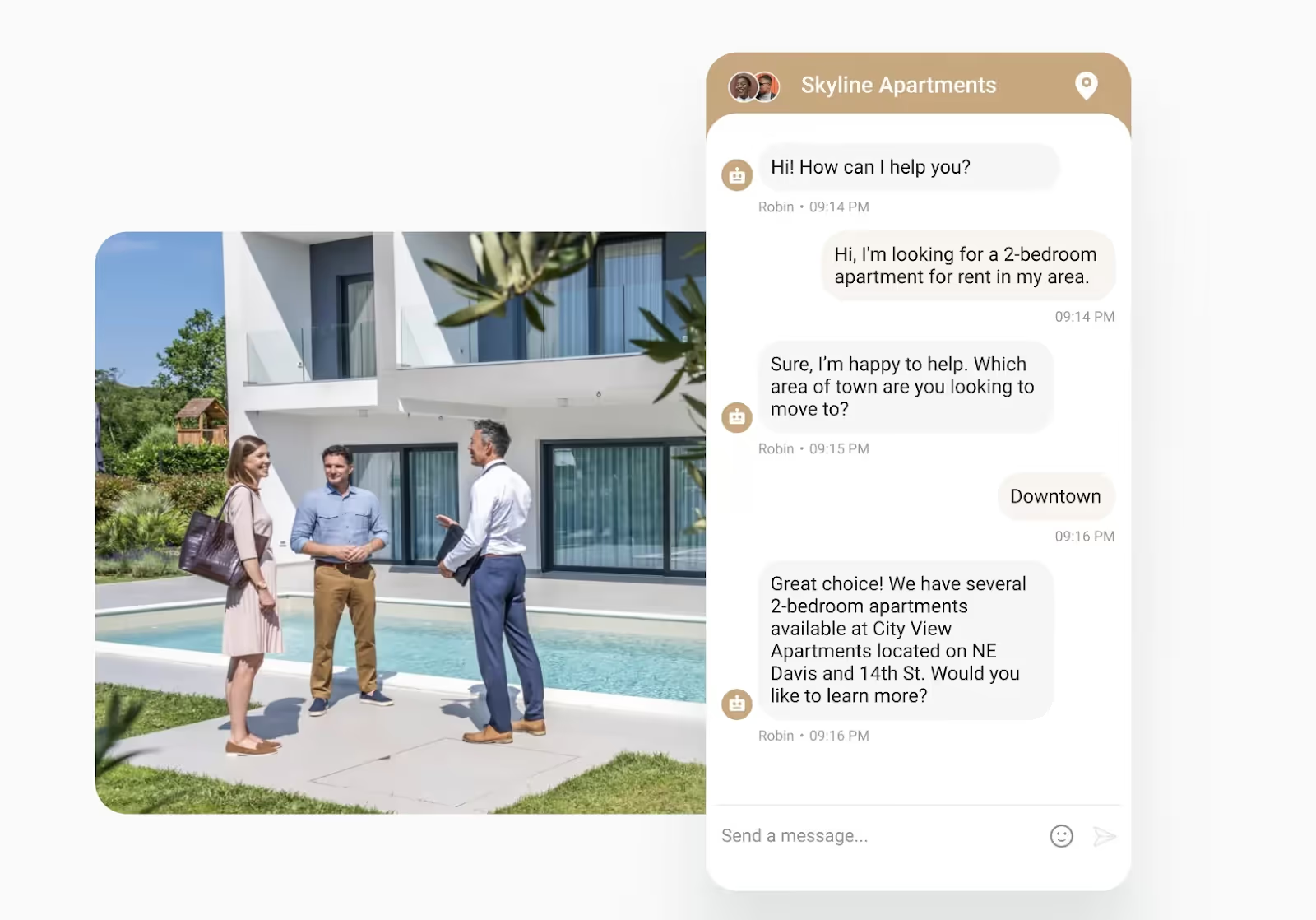
6. AI for Creative & Design Automation
Creating visual assets used to be a bottleneck. Now, AI tools like Midjourney, DALL·E 3, Adobe Firefly, and Canva’s Magic Studio allow agencies to produce banner ads, product mockups, and social visuals in minutes.
Creative automation saves time while enabling A/B testing at scale. Canva’s AI tools, for example, empower marketers to instantly generate image variants that match specific campaigns, tones, or placements.
AI creative tools support:
- Faster production of branded visuals
- Design variant testing without designer bottlenecks
- On-brand asset consistency at scale
For agencies working across multiple platforms and formats, creative automation ensures consistency and speed without sacrificing quality.
Future Trends in AI Marketing
AI marketing is evolving rapidly. What worked last year might already be outdated. These four trends are shaping how leading AI marketing firms and brands are rethinking their approach in 2025.
1. Rise of Answer Engine Optimization (AEO)
Search is no longer limited to Google. Users are turning to ChatGPT, Perplexity, Gemini, and other AI tools to find answers directly. As a result, Answer Engine Optimization (AEO) is becoming critical.
AEO focuses on structuring content to appear in AI Overviews, featured snippets, and conversational search results. This includes using:
- Semantic keyword clusters
- FAQ-style headings
- Entity-rich content
- Clean, modular structure for easy parsing by AI
Revv Growth is already ranking in AI tools like ChatGPT and Perplexity for topics such as ABM strategy, LinkedIn ABM, and SEO content frameworks. Tools like Frase, Clearscope help structure content specifically for LLM visibility.
If your content isn’t optimized for AI-first discovery, it’s likely being skipped altogether.
2. Integration of Generative AI Tools
The use of generative AI tools like GPT-4, Claude 3, Gemini, and Sora has gone from experimentation to operationalization. These platforms are now used across the campaign lifecycle, from ideation to copy, design, and analysis.
Adoption surged from 33% in 2023 to 71% in 2024, with marketing among the top three functions using GenAI tools.
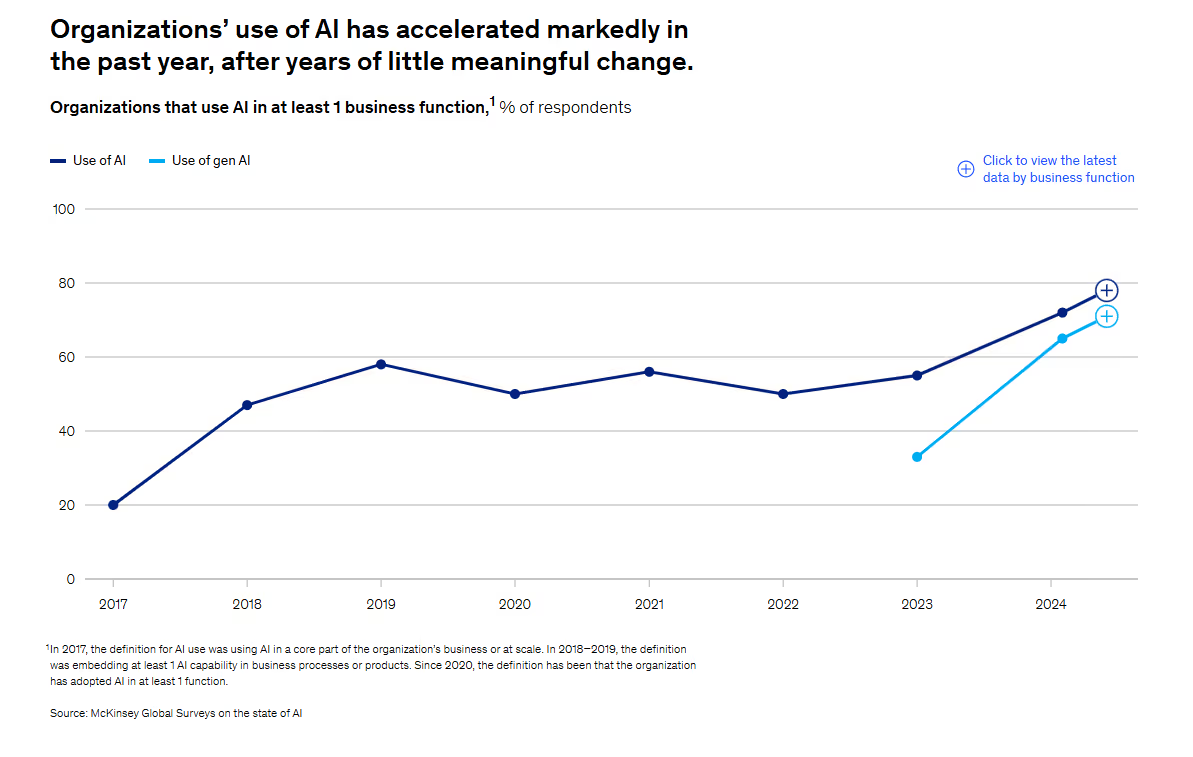
Major brands are integrating these tools internally:
- Unilever uses AI to personalize product campaigns and track audience sentiment
- Nestlé reports that GenAI saves employees up to 45 minutes a week on marketing tasks
Digital agencies using AI are now integrating GenAI tools into every phase of campaign development for faster execution.
3. Compliance & Data Privacy in AI Marketing
As AI usage grows, so do compliance challenges. Regulations like GDPR, CCPA, and the EU AI Act are reshaping how data is collected, stored, and used.
Marketers must now prioritize:
- Transparent consent frameworks
- First-party data strategies
- Explainable AI models that comply with audit requirements
Platforms like Salesforce and HubSpot AI are incorporating built-in compliance tools to help brands manage consent and data usage responsibly.
Agencies that don’t account for compliance may put clients at legal risk or lose access to vital data sources. Choosing partners who take this seriously is no longer optional.
4. Ethical Considerations & AI Transparency
Beyond compliance, the ethical use of AI is under scrutiny. Issues like bias in AI outputs, hallucinated content, and AI washing (exaggerating AI capabilities) are being flagged by regulators and users alike.
In 2024, the SEC fined two firms for falsely marketing their AI usage, a reminder that transparency matters.
Brands should expect agencies to:
- Disclose how AI tools are used across services
- Implement human review layers
- Use auditable models that explain decision logic
Ethical marketing isn’t just good practice. It builds trust with both users and AI systems that prioritize credible, reliable content in ranking.
Conclusion
AI is not replacing marketers. It is replacing outdated marketing methods. Whether your goal is to rank in AI Overviews, scale content production, or personalize campaigns across channels, the right AI marketing agency can help you get there faster and more efficiently.
As search evolves toward AI-first discovery, it’s critical to work with partners who combine technical expertise with real-world execution. The agencies featured here are shaping trends.
Revv Growth partners with SaaS brands to build AI-powered content engines, drive MQLs through personalized ABM, and help you rank in both Google and AI-first platforms like ChatGPT and Perplexity.
Book a demo with us to know how we use AI to drive faster, smarter execution across your marketing efforts without adding to your headcount.

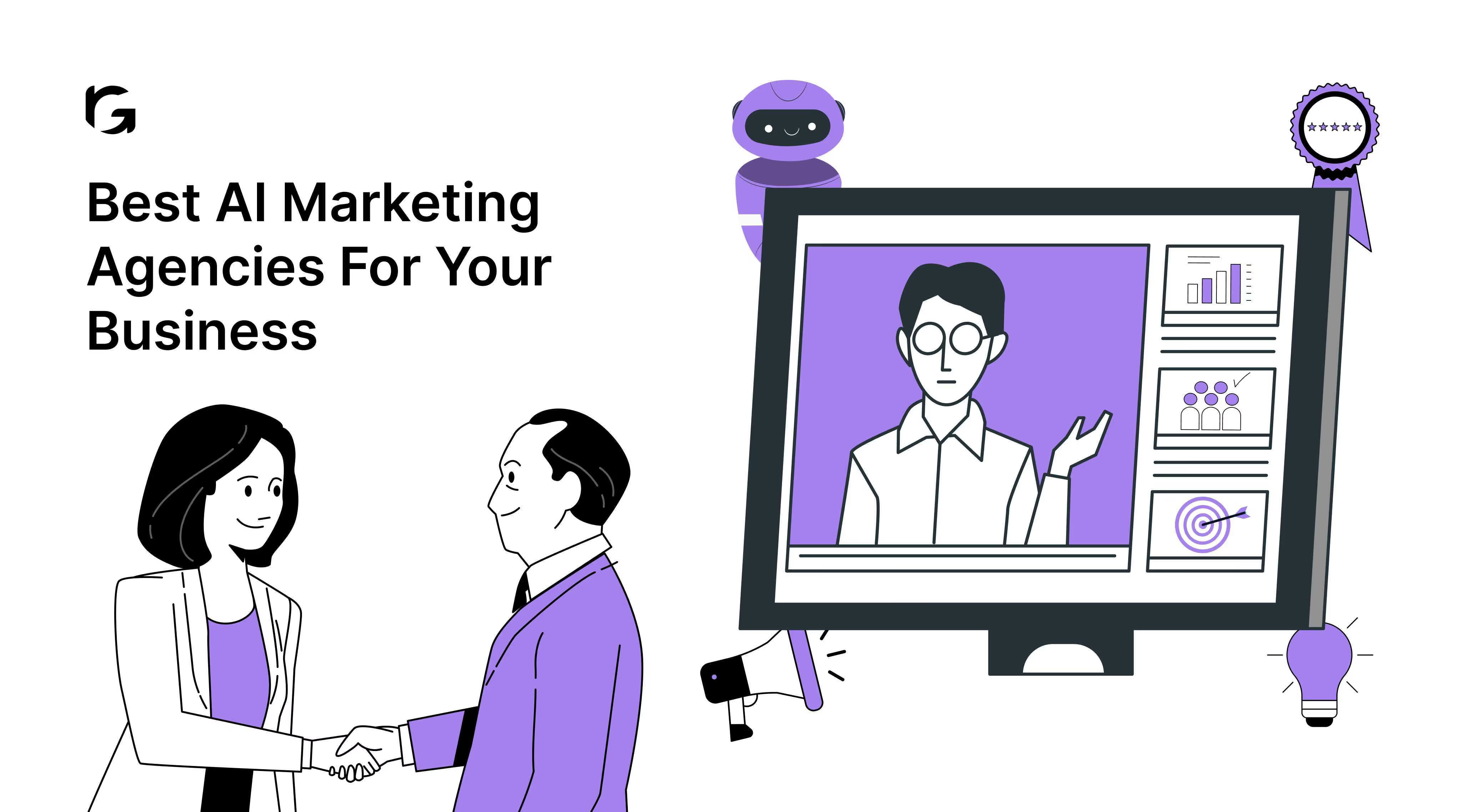

.svg)
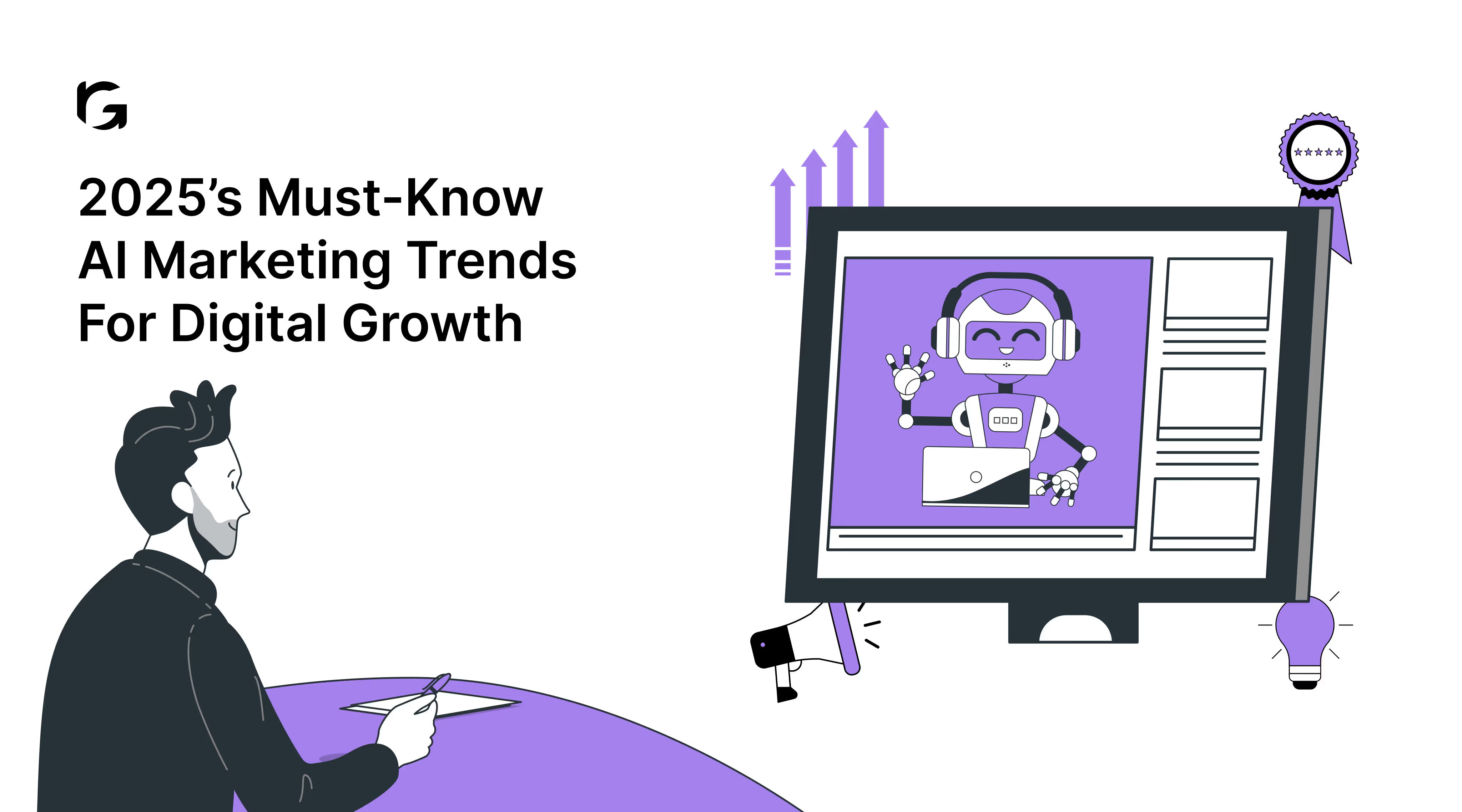
.avif)
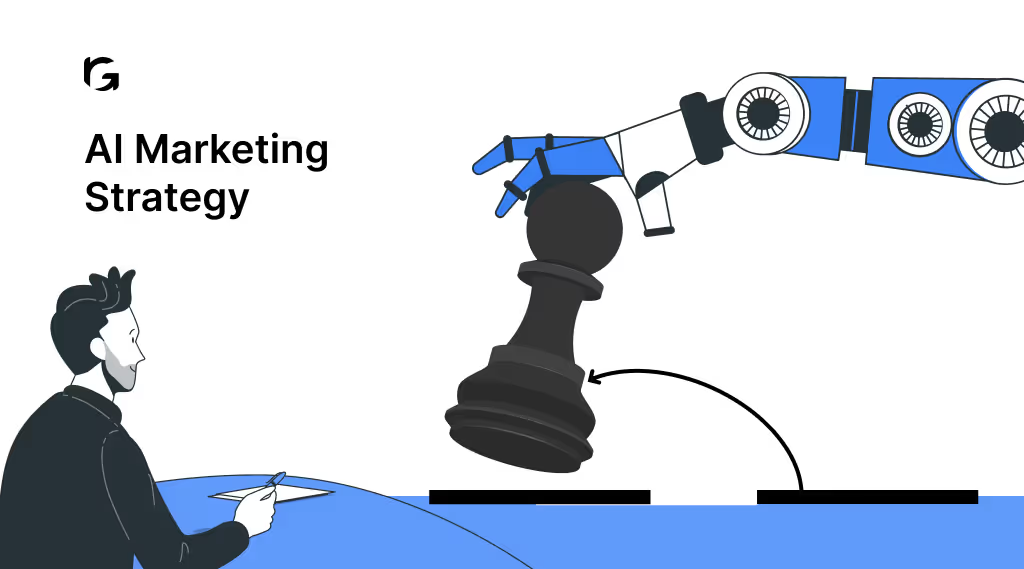
.webp)